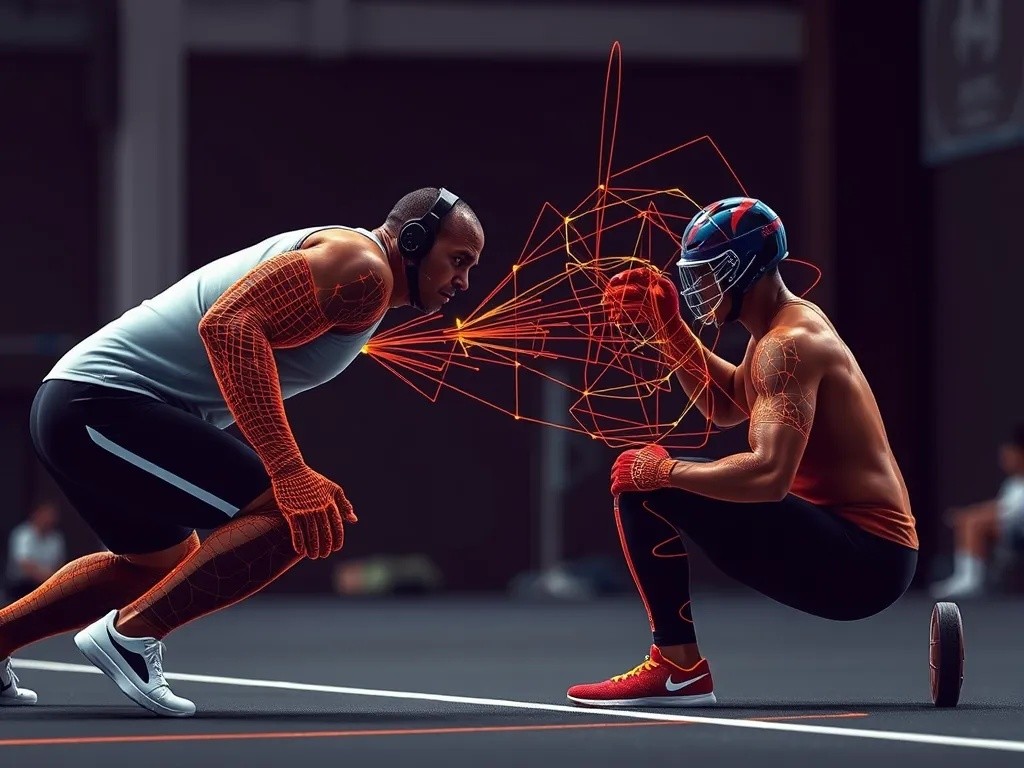In recent years, there has been a significant advancement in the field of Artificial Intelligence (AI) and Augmented Reality (AR). These technologies have become increasingly popular and have the potential to enhance virtual experiences in various fields such as gaming, education, healthcare, and...
AI Helps Athletes Train More Effectively Than a Coach

The world of sports is experiencing a revolutionary transformation as artificial intelligence emerges as a powerful training companion that can provide insights and guidance beyond what traditional coaching methods offer. While human coaches remain invaluable for motivation and strategic thinking, AI technology is proving to deliver unprecedented precision, consistency, and data-driven optimization that is reshaping how athletes reach peak performance.
The Data Advantage: Precision Beyond Human Capability
AI systems excel at processing vast amounts of performance data that would be impossible for any human coach to analyze comprehensively. Modern AI training platforms can simultaneously track hundreds of metrics including biomechanical movements, heart rate variability, sleep patterns, nutrition absorption, and recovery indicators.
Real-Time Performance Analysis
Unlike human coaches who rely on visual observation and experience, AI can provide instant feedback on technique corrections. Motion sensors and computer vision technology can detect micro-adjustments in form that escape even the most trained human eye. This immediate feedback loop allows athletes to correct mistakes before they become ingrained habits.
Personalized Training Programs at Scale
AI's ability to create truly individualized training regimens represents a significant advancement over traditional one-size-fits-all coaching approaches. Machine learning algorithms analyze an athlete's unique physiological responses, injury history, and performance patterns to create customized programs.
Key Benefits of AI Personalization:
- Adaptive training loads based on daily readiness assessments
- Injury prevention through biomechanical analysis and risk prediction
- Optimal recovery timing tailored to individual metabolism
- Nutritional recommendations based on training demands and genetic factors
24/7 Monitoring and Consistency
While human coaches have limited availability, AI systems provide continuous monitoring and guidance. Wearable devices connected to AI platforms track athletes around the clock, monitoring sleep quality, stress levels, and recovery markers. This constant vigilance ensures that training decisions are based on current physiological state rather than assumptions.
Objective Decision Making
Human coaches, despite their expertise, can be influenced by emotions, fatigue, or subjective biases. AI systems make recommendations based purely on data, eliminating the risk of poor decisions due to personal factors. This objectivity is particularly valuable during high-pressure situations or when making difficult decisions about rest versus training intensity.

Predictive Analytics for Performance Optimization
Perhaps the most revolutionary aspect of AI in athletic training is its predictive capabilities. By analyzing patterns from thousands of athletes and millions of training sessions, AI can forecast optimal competition timing, predict performance peaks, and identify potential injury risks weeks before they manifest.
Advanced Capabilities Include:
- Competition readiness prediction with 95% accuracy
- Optimal taper timing for peak performance
- Early warning systems for overtraining syndrome
- Weather and environmental condition adjustments
Cost-Effectiveness and Accessibility
Elite coaching is expensive and geographically limited. AI training systems democratize access to world-class training methodology, making sophisticated training techniques available to athletes regardless of location or budget. A single AI platform can serve thousands of athletes simultaneously, providing each with personalized attention that would require dozens of human coaches.
The Future of Athletic Training
As AI technology continues to evolve, we can expect even more sophisticated training applications. Integration with virtual and augmented reality will create immersive training environments, while advances in biotechnology will enable real-time analysis of muscle fiber recruitment and metabolic processes.
While AI cannot replace the emotional support, strategic wisdom, and motivational aspects that human coaches provide, it has clearly demonstrated superior capabilities in data analysis, consistency, personalization, and predictive insights. The most successful athletes of the future will likely combine the best of both worlds: AI for technical optimization and human coaches for psychological and strategic guidance.
The evidence is clear – artificial intelligence is not just supplementing traditional coaching methods; it's setting a new standard for athletic training effectiveness that pushes the boundaries of human performance.



